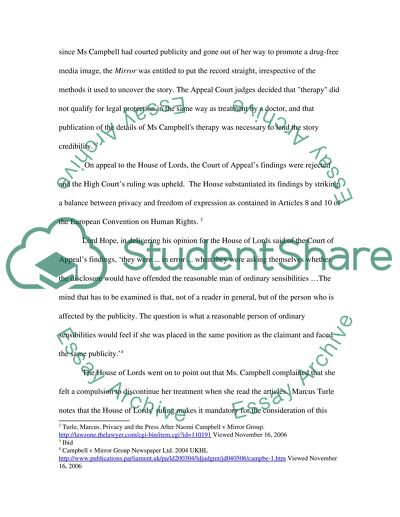Cite this document
(Campbell v Mirror Group Newspaper Ltd Report Example | Topics and Well Written Essays - 1500 words, n.d.)
Campbell v Mirror Group Newspaper Ltd Report Example | Topics and Well Written Essays - 1500 words. https://studentshare.org/law/1538209-analysis-of-campbell-v-mirror-group-newspapers-judgment
Campbell v Mirror Group Newspaper Ltd Report Example | Topics and Well Written Essays - 1500 words. https://studentshare.org/law/1538209-analysis-of-campbell-v-mirror-group-newspapers-judgment
(Campbell V Mirror Group Newspaper Ltd Report Example | Topics and Well Written Essays - 1500 Words)
Campbell V Mirror Group Newspaper Ltd Report Example | Topics and Well Written Essays - 1500 Words. https://studentshare.org/law/1538209-analysis-of-campbell-v-mirror-group-newspapers-judgment.
Campbell V Mirror Group Newspaper Ltd Report Example | Topics and Well Written Essays - 1500 Words. https://studentshare.org/law/1538209-analysis-of-campbell-v-mirror-group-newspapers-judgment.
“Campbell V Mirror Group Newspaper Ltd Report Example | Topics and Well Written Essays - 1500 Words”. https://studentshare.org/law/1538209-analysis-of-campbell-v-mirror-group-newspapers-judgment.


